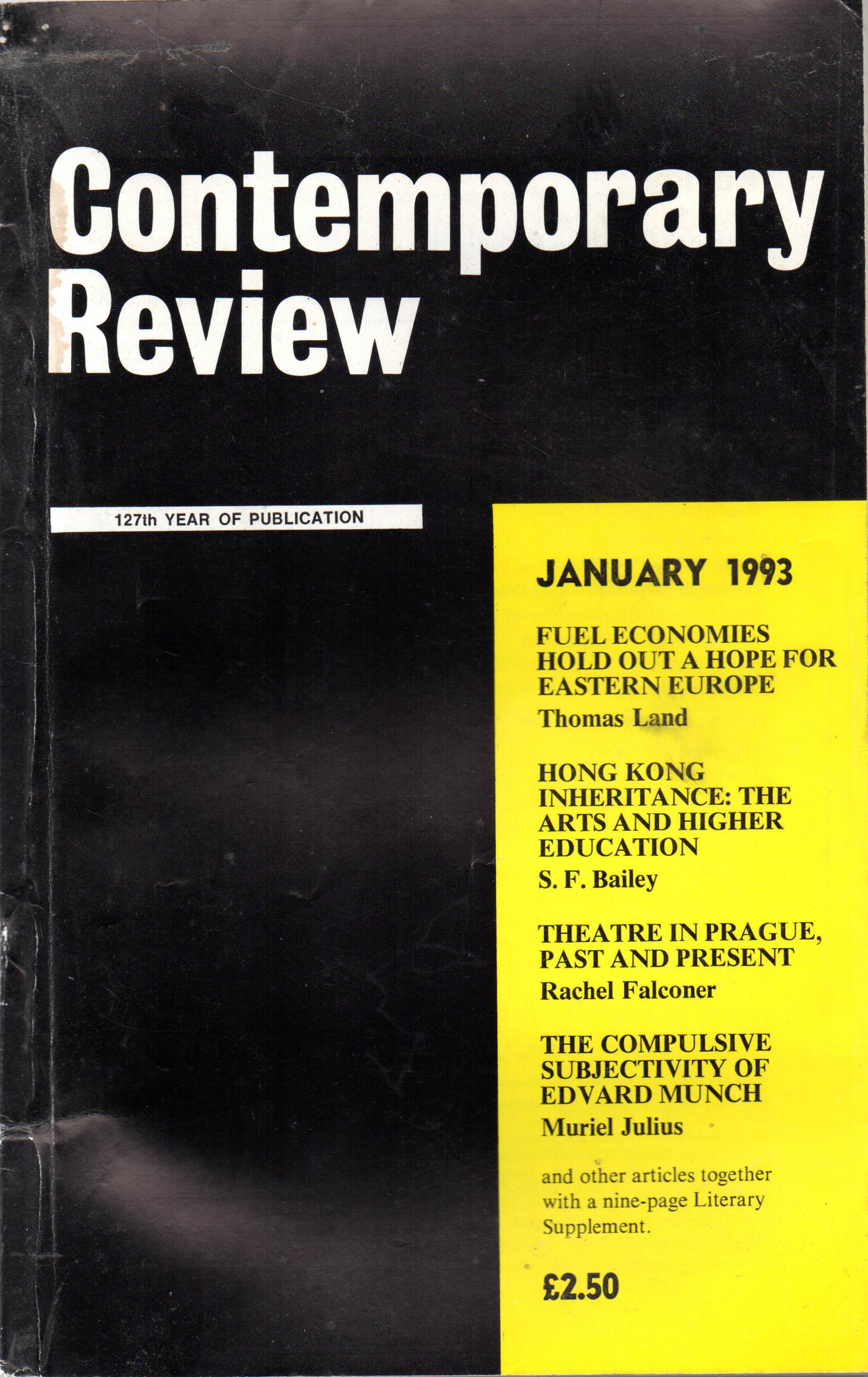Contemporary review
The Contemporary Review (CR), a monthly magazine, was founded in 1866 as a vehicle for the growing community of writers who sought to express their hopes for a brave new world, transformed by science, democracy, and the Industrial Revolution. It was ‘left-of-centre’, with unofficial links to the Liberal Party, progressively Christian, or humanist in outlook. Its early contributors included John Ruskin, W.E. Gladstone, Matthew Arnold, J.M. Barrie, and Aldous Huxley. Under two long-standing editors, Percy Bunting (1882-1911) and G.P. Gooch (1911-1960), the historian and Liberal MP for Bath, CR developed a wide readership, across Europe, the Commonwealth, and the Empire. Throughout the 20th century, its yellow and black cover could be seen in most newsagents, until, like its comrade magazine from the Victorian age, Punch, it ceased publication in 2013. Author’s note: I first came across CR in the 1960s, when its title seemed like a huge joke. No magazine in Swinging London could seem less contemporary. It had no pictures, few ads, no targeted readership, and daunting titles. It was where the Great and the Good aired their latest causes. Their articles were well-reasoned, rarely flippant, discursive, but written with a twist of academic irony, typical of the Edwardians. They seemed to come from a vanishing civilization. In 1978, I wrote a discussion paper for the Liberal Party, Change and Choice, about the future for the British arts and cultural industries. The CR Editor, Rosalind Wade, the novelist, invited me to contribute an article for the magazine, which began a long association. For ten years, at Rosalind’s invitation, I wrote six articles annually about various aspects of our changing world. I wrote about a time when the prospects for broadband were threatening to transform our lives. The Cold War was starting to thaw. Britain was adjusting to its new role within the European Community. The post- war vision of a Welfare State was crumbling under the challenges of inflation, poor industrial relations, and the rise of Thatcherism. Always, however, I tried to match the literary tone of the original CR. From the 65 articles written for CR, I have selected three batches of articles to be available online. They are grouped around different themes, but evoke a pre-millennial world, whose speculations about the future anticipated the world today.
- CULTURE AND POLITICS
- BEFORE THE BERLIN WALL CAME DOWN
- HOME MUDDLE AND GLOBAL MADNESS
The Minister’s Non-Quantum Shift
A National Cause?
Cities that shun the artist, artists that shun the cities.
Pleasure Principle
Mere Formalities
Ibsen and the Lost Bohemia
Lovin' New York
The Forces of Friendship
Making Lists
World Peace – a conversation with Lord George Brown
In Labour – a Conversation with the Rt. Hon. William Rodgers, MP
